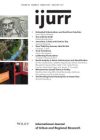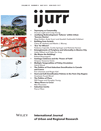This debate specifically focuses on densification as a particular dimension of (post-) suburbanization. In the introduction, we discuss densification, along with ‘compactness’ and ‘intensification’, conceptual terms that have become buzzwords within urban planning. Objectives associated with these tend to be presented in the literature within a normative framework, structured by a critique of the negative effects attributed to sprawl. The perspective here is different. It is not normative but critical, and articulated around the analysis of political and social issues, related to the transformation of wider metropolitan space. Three main themes are developed: (1) the politics of densification (the environmental arguments favouring densification are highly plastic, and are thus often used to defend projects or initiatives which are actually determined by other agendas); (2) why morphology matters (a similar number of houses or square metres can be established in many different ways, and those different ways have political and social meaning); (3) the diversity of suburban densification regimes (it is not only the landscapes of the suburbs that are diverse, but also the local bodies governing them—between the small residential municipalities of the Paris periurbs and the large inner suburbs of Toronto lies a broad spectrum).
Full debate can be found here.

